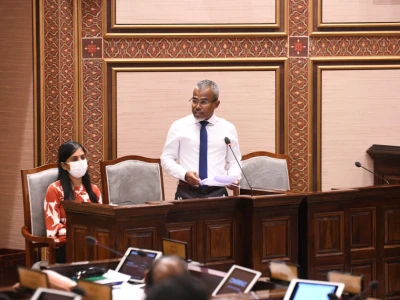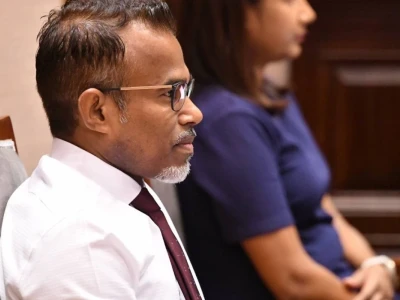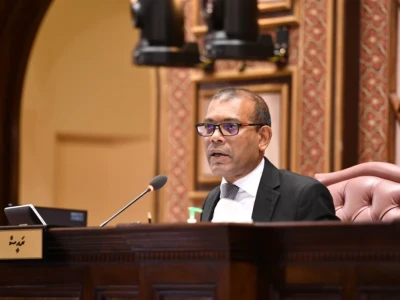
MJA questions govt intention as Evidence Act amendment fails in parliament
MJA appealed that the committee process of the bill should be completed as soon as possible before journalists are forced to disclose their sources.
Top Stories
By
Mohamed Muzayyin Nazim
Maldives Journalists' Association (MJA) on Wednesday questioned the government's intentions after the government-controlled parliament rejected the amendments proposed to the Evidence Act, which was designed in a way that would undermine the media and journalists of the country.
The bill was sent back to the parliament’s committee after it failed to get support from pro-government MPs in Wednesday’s vote after the committee review.
In a statement following the vote, MJA said the body does not approve of the amendment being sent back without passing it. The MJA also expressed concern that the law was in place and journalists could be forced to disclose their sources under duress.
"The non-passage of the bill is not acceptable to the organisation at all and the good intentions of the government in this regard are once again under question," the MJA said in a three-page statement.
The statement noted that with parliament going into recess on Thursday, it is likely to take at least a few months for the bill to be tabled again. Therefore, it is possible that there may be a situation in which journalists may be thrown into a precarious situation, the MJA said.
"The appeal of this organisation is that the committee process of the bill should be completed as soon as possible before journalists are forced to disclose their sources using the law now and pass it in parliament with these amendments," the statement said.
The statement also highlighted what the MJA has done so far to speed up the amendment.
-
Met and discussed with the officials of the Attorney General's Office to amend the act
-
At the Attorney General's Office, the only request was to remove the provision that mandates disclosure of journalists’ sources; the government could not agree to it
-
The amendments sought interpretation of what constitutes national security and terrorism offences and not allowing the accused to approach the court to disclose sources
-
Following these proposals, the amendment prepared by the Attorney General's Office included many of the amendments proposed by the organisations
-
As the bill was delayed after it was sent to parliament, concerns were shared with the parliamentary judiciary committee that was examining it
"The judiciary committee has addressed the issue of non-interpretation of offences prejudicial to national security, which the organisation believes to be one of the main concerns in the law," the MJA said in the statement.
"The organisation welcomes the definition of national security and terrorism and its inclusion in the Bill."
When the parliament passed the Evidence Bill, designed to force journalists to disclose their sources, and ratified by President Ibrahim Mohamed Solih on July 18, journalists were raising concerns about it.
In November, the government proposed the amendment to give only the High Court the power to issue directions to source disclosure to address these concerns.




